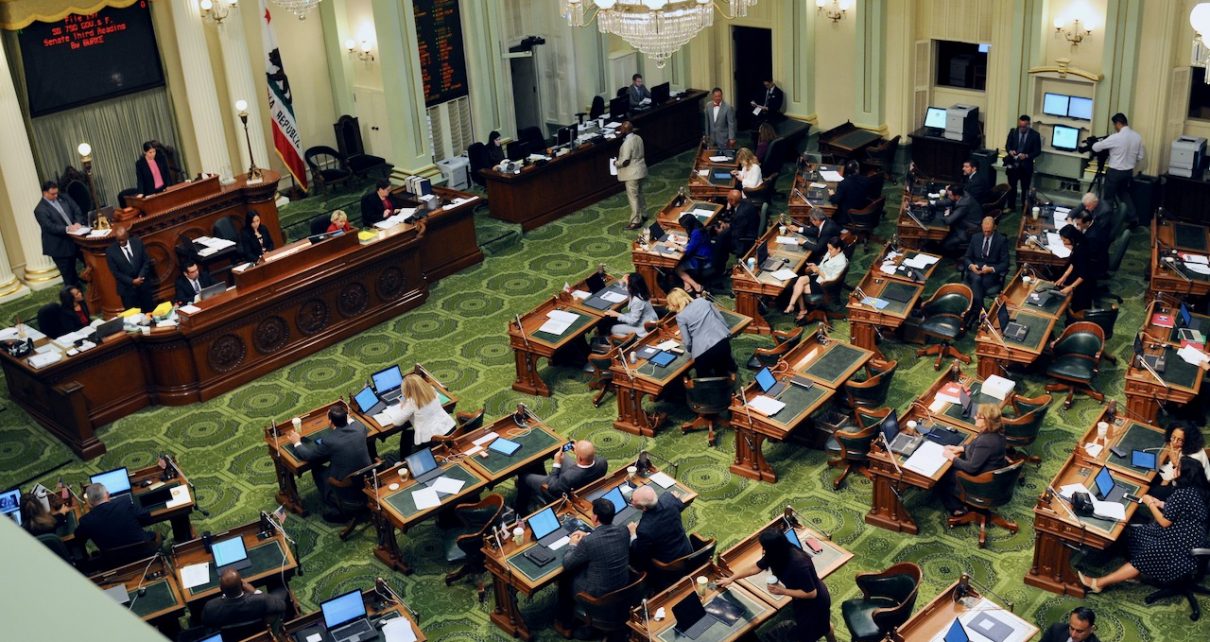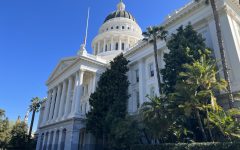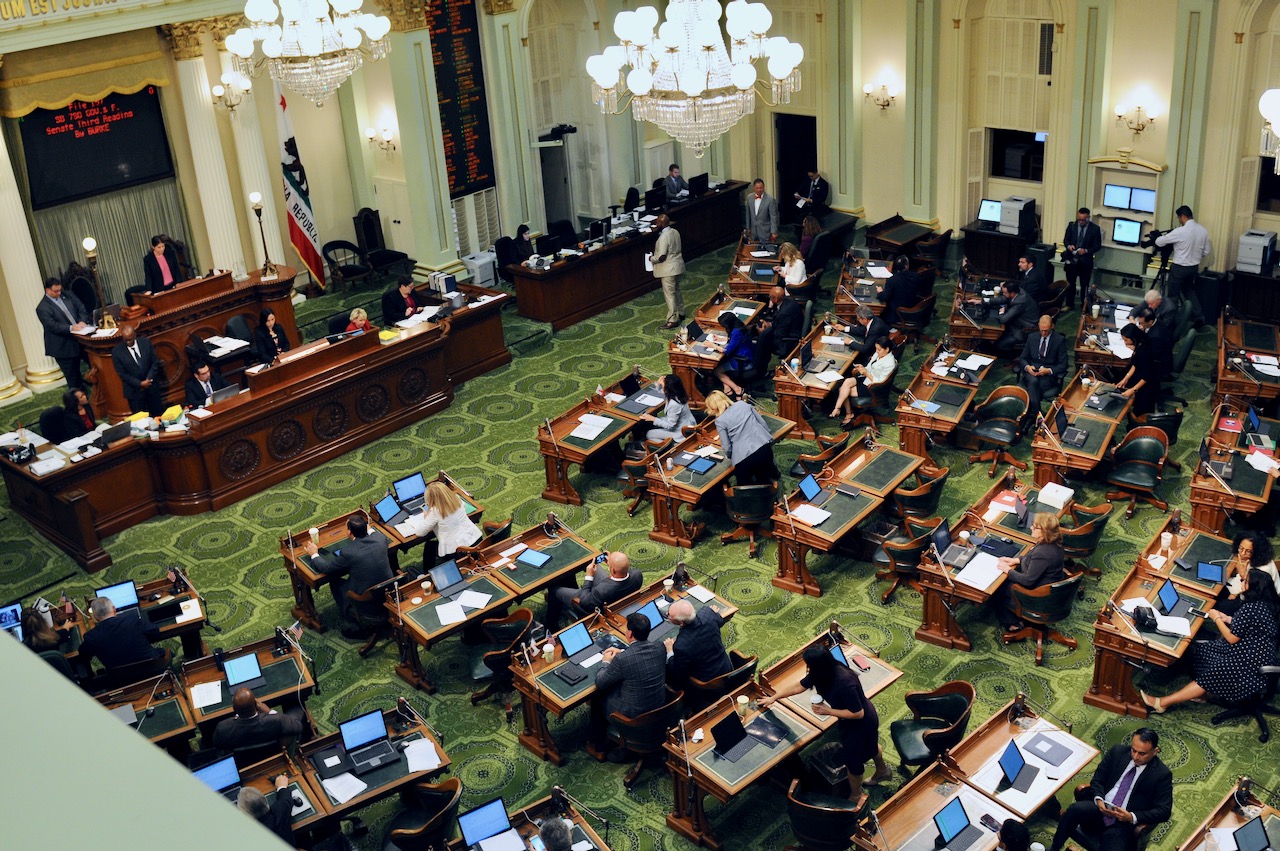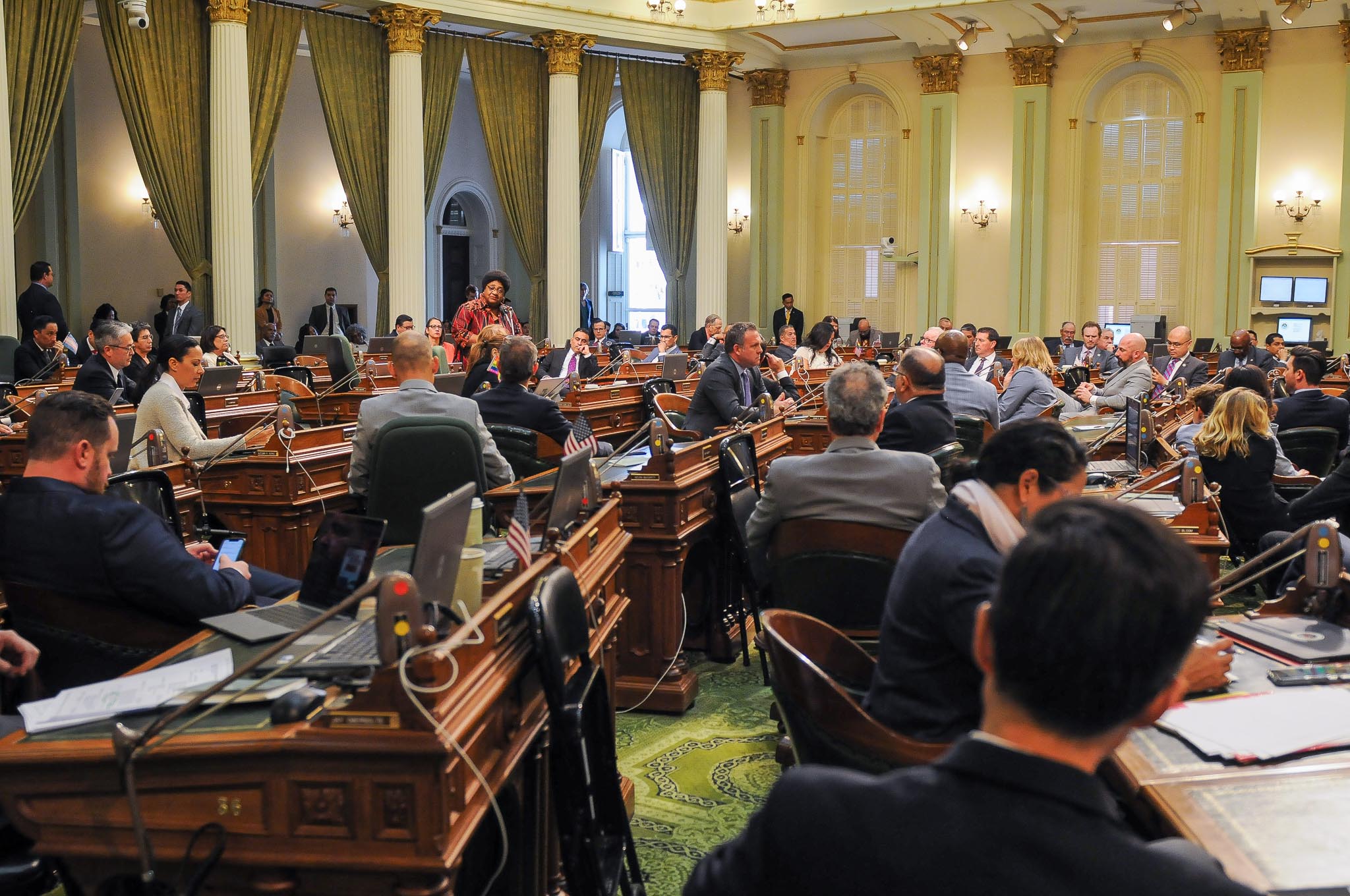
California State Assembly Chamber. (Photo: Kevin Sanders for California Globe)
Are Legislative Findings in Voters FIRST Act Bills Sufficient?
The Legislature should consider adding explanatory language to their simple statements in Prop. 11-amendment bills
By Chris Micheli, May 30, 2023 2:45 am
In reviewing recent legislation that proposes amendments to California’s Voters FIRST Act, as enacted by the voters by Proposition 11 in November 2008, the same legislative finding and declaration is made in each bill. It is a simplistic statement that raises the question whether this language meets the requirement of Prop. 11.
Prop. 11 enacted an initiative statute that, in Section 2 of Prop. 11, provides the following, in part:
SEC. 2. Findings and Purpose. The People of the State of California hereby make the following findings and declare their purpose in enacting this act is as follows: (a) Under current law, California legislators draw their own political districts. Allowing politicians to draw their own districts is a serious conflict of interest that harms voters. That is why 99 percent of incumbent politicians were reelected in the districts they had drawn for themselves in the recent elections. (b) Politicians draw districts that serve their interests, not those of our communities. For example, cities such as Long Beach, San Jose and Fresno are divided into multiple oddly shaped districts to protect incumbent legislators. Voters in many communities have no political voice because they have been split into as many as four different districts to protect incumbent legislators. We need reform to keep our communities together so everyone has representation. (c) This reform will make the redistricting process open so it cannot be controlled by the party in power. It will give us an equal number of Democrats and Republicans on the commission, and will ensure full participation of independent voters—whose voices are completely shut out of the current process. In addition, this reform requires support from Democrats, Republicans, and independents for approval of new redistricting plans. (d) The independent Citizens Redistricting Commission will draw districts based on strict, nonpartisan rules designed to ensure fair representation. The reform takes redistricting out of the partisan battles of the Legislature and guarantees redistricting will be debated in the open with public meetings, and all minutes will be posted publicly on the Internet. Every aspect of this process will be open to scrutiny by the public and the press.
In addition, Prop. 11, in Section 4.1, provides the following:
(c) The Legislature may not amend this chapter unless all of the following are met: (1) By the same vote required for the adoption of the final set of maps, the commission recommends amendments to this chapter to carry out its purpose and intent. (2) The exact language of the amendments provided by the commission is enacted as a statute approved by a two-thirds vote of each house of the Legislature and signed by the Governor. (3) The bill containing the amendments provided by the commission is in print for 10 days before final passage by the Legislature. (4) The amendments further the purposes of this act. (5) The amendments may not be passed by the Legislature in a year ending in 0 or 1.
Prop. 11 was a constitutional and statutory initiative enacted by the People and allows the Voters FIRST Act to be amended by the Legislature. It specifies that any provision of the Act may be amended by a 2/3 vote of the Legislature, so long as that amendment “further the purposes of this act.”
Recall that Article II, Section 10 of the California Constitution provides in Subdivision (c):
The Legislature may amend or repeal a referendum statute. The Legislature may amend or repeal an initiative statute by another statute that becomes effective only when approved by the electors unless the initiative statute permits amendment or repeal without the electors’ approval.
This provision only allows an initiative that was adopted by the state’s voters to be amended by the Legislature (such as Prop. 11) if the initiative permits amendment without the electorate’s approval. Prop. 11 does allow amendment by the California Legislature as described above.
As a result, the Legislature may amend Prop. 11. So, when the Legislature desires to amend Prop. 11, it includes in a “plus section” (which can be seen at the end of a bill that proposes to amend the Act) a legislative finding and declaration. The following is an example of what is contained in Prop. 11 amendment bills:
The Legislature finds and declares that this bill furthers the purpose of the Voters FIRST Act within the meaning of subdivision (c) of Section 8251 of the Government Code.
The question to address is whether the language in the above example is sufficient or if there should be some explanation why the Legislature believes that Prop. 11’s stated purposes are being furthered by the proposed amendment. Moreover, an amendment to Prop. 11 should also include language in the amending bill that all paragraphs of subdivision (c) have been met.
The Legislative Counsel’s Digest includes the following description:
The Voters FIRST Act authorizes the Legislature to amend its provisions to further the act’s purposes upon a 2/3 vote of each house of the Legislature and compliance with specified procedural requirements. This bill would declare that it furthers the purposes of the act.
Unfortunately, bills amending Prop. 11 that contain a simple statement as set forth above do not in any way explain why the Legislature actually believes the proposed amendment “furthers the purposes” of the Voters FIRST Act. Instead, the bill merely states the legislative finding and declaration without any further justification or explanation provided.
As with other bills that require legislative findings and declarations, should the bills that propose amendments to Prop. 11 include reference to any of Prop. 11’s specified purposes (there are four of them in Section 2 of the Act)?
This approach, providing a short explanation, is the approach often taken with urgency clauses and special statutes. If courts examine the urgency clause or special statute findings, there is at least a short sentence or paragraph that explains why the Legislature has determined a particular bill needs an urgency clause or why the bill qualifies as a special statute.
So, perhaps the bills that propose to amend Prop. 11 should also provide some rationale for their proposed amendments so that, if the legislation were challenged in litigation, courts would have a basis for understanding why the Legislature determined the bill made an amendment to Prop. 11 furthered its purposes.
As a result, the Legislature should consider adding some explanatory language to their simple statements in Prop. 11-amendment bills going forward. And, these bills should include language regarding how the bill complies with the specified procedural requirements in Prop. 11.
- Deposition of Expert Witnesses - February 20, 2026
- Response to Interrogatories - February 20, 2026
- Insignia of Nonprofit Associations - February 19, 2026





One thought on “Are Legislative Findings in Voters FIRST Act Bills Sufficient?”